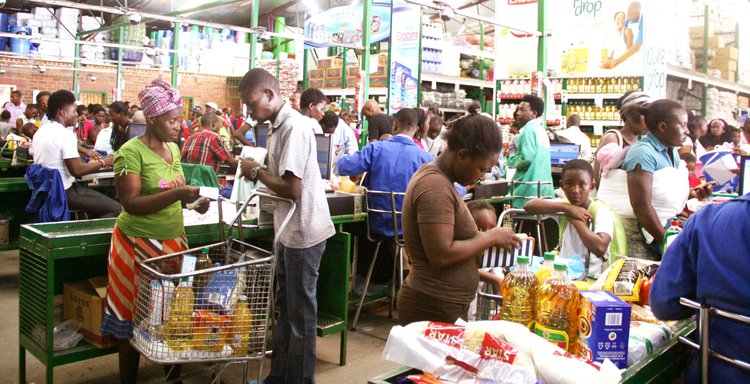
This comes at a time when Cabinet has approved principles of the Consumer Protection Bill, which criminalises retailers and manufacturers who increase prices of goods and services without justification.
The Consumer Council of Zimbabwe (CCZ) yesterday said the cost of living — as measured by the low income urban earner monthly basket for a family of six — increased by 1,1 percent to $604,5 in September from $597,8 recorded in August.
“As CCZ, we assume that the increase in the total figure of the basket can be attributed to fuel price which have gone up, cash shortages resulting in low demand of some goods and the availability of most goods leading to high competition,” said CCZ.
This was after the September food basket increased by $6,13 or 3,92 percent from $150,03 in August to $156,20 in September 2018. The price of detergents increased by $0,60 or 4,5 percent from $13,74 to $14,34.
This saw the annual inflation rising to 5,39 percent in September from 4,83 percent recorded in August, due to the general rise of goods and services in response to soaring parallel market rates, according to the national statistics agency, Zimstats.
CCZ noted that the continuing existence of three-tier pricing and black market cash sale has contributed to the rise in the food basket.
“Consumers are urged to always seek a fair deal on the marketplace by ensuring that their rights are observed, as well as reporting any anomalies on the marketplace,” the consumer watchdog said.
Zimbabwe relies heavily on imported goods mainly from South Africa and produces very little domestically. Some retailers have also become accustomed to making huge margins due to the high cost of doing business and the desire to make super profits.
Slight decreases were recorded in tea leaves by $0,01 from $1,89 to $1,88, cooking oil by $0,1 from $1,72 to $1,62, brown sugar 2kg by $0,01 from $2,19 to $2,18.
“The CCZ continues to encourage consumers to shop conscientiously and to always buy certified products. Where the products are not certified, they should exercise their right to information by carefully examining if the products they are purchasing are well labelled, packaged and provided with vital information such as manufacturing and expiry dates and ingredients used in the make-up of the products,” said CCZ.
During the months under review, CCZ said increases were recorded in rice which rose by $0,36 from $2,37 to $2,73, roller meal by $0,21 from $9,12 to $9,33, flour by $0,09 from $2,00 to $2,09, meat by $0,28 from $5,45 to $5,73.
Bath soap increased by $0,06 from $0,91 to $0,97 and laundry bar by $0,06 from $1,43 to $1,49, washing powder by $0,05 from $1,46 to $1,51, bread by $0,10 from $0,70 to $0,80
The prices of margarine, cabbage, onions, tomatoes and salt remain unchanged during the period under review.
The increases are taking place at a time when most companies are facing challenges in accessing hard currencies for the importation of key raw materials, with banks failing to settle their international payments on time.
Some have been compelled to resort to the black market where they pay a premium of up to 80 percent. This has had the effect of increasing prices for goods and services.
Zimbabwe relies heavily on imported goods mainly from South Africa and produces very little domestically. Some retailers have also become accustomed to making huge margins due to the high cost of doing business and the desire to make super profits. Daily News.






